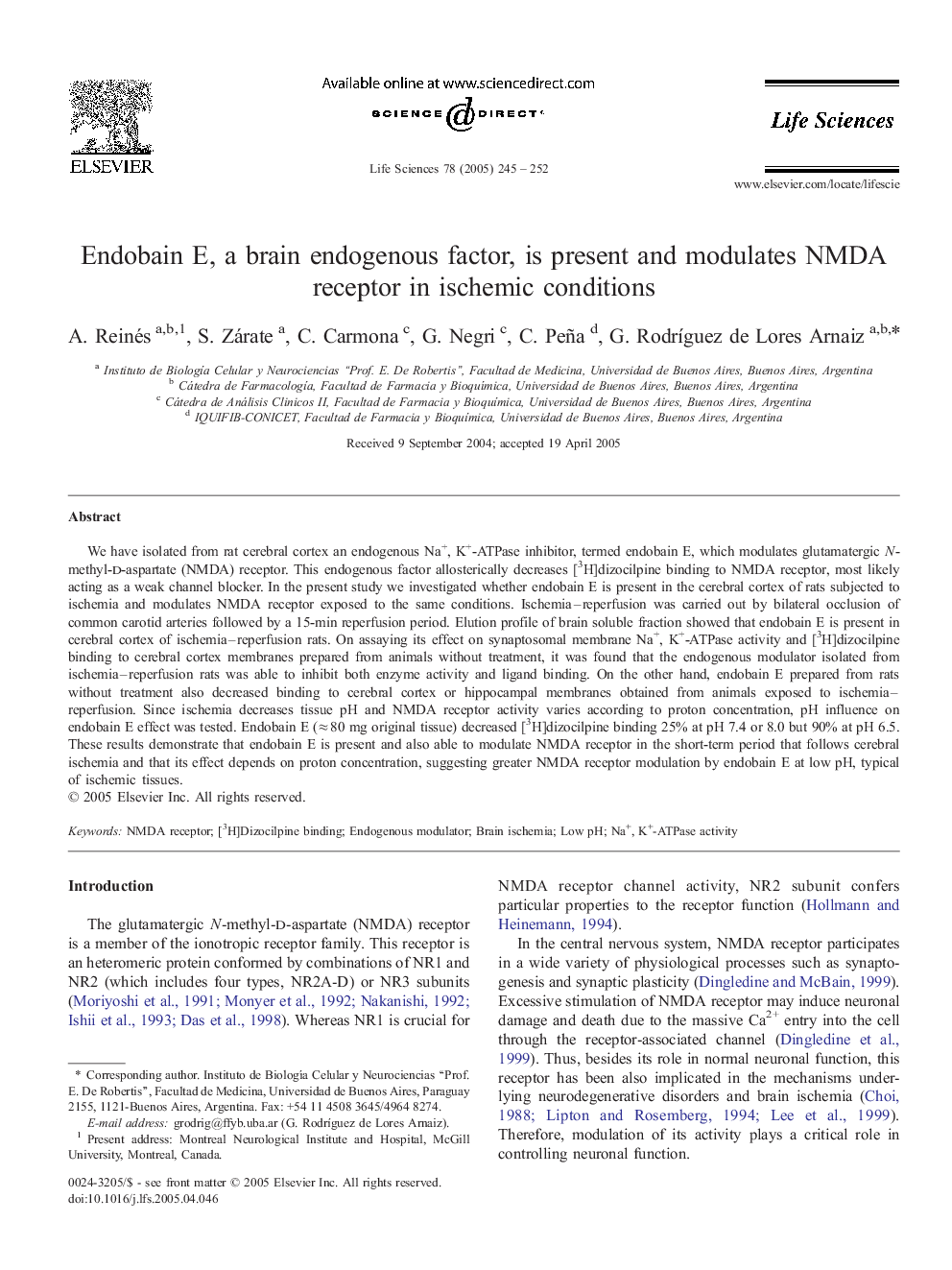| Article ID | Journal | Published Year | Pages | File Type |
|---|---|---|---|---|
| 9012610 | Life Sciences | 2005 | 8 Pages |
Abstract
We have isolated from rat cerebral cortex an endogenous Na+, K+-ATPase inhibitor, termed endobain E, which modulates glutamatergic N-methyl-d-aspartate (NMDA) receptor. This endogenous factor allosterically decreases [3H]dizocilpine binding to NMDA receptor, most likely acting as a weak channel blocker. In the present study we investigated whether endobain E is present in the cerebral cortex of rats subjected to ischemia and modulates NMDA receptor exposed to the same conditions. Ischemia-reperfusion was carried out by bilateral occlusion of common carotid arteries followed by a 15-min reperfusion period. Elution profile of brain soluble fraction showed that endobain E is present in cerebral cortex of ischemia-reperfusion rats. On assaying its effect on synaptosomal membrane Na+, K+-ATPase activity and [3H]dizocilpine binding to cerebral cortex membranes prepared from animals without treatment, it was found that the endogenous modulator isolated from ischemia-reperfusion rats was able to inhibit both enzyme activity and ligand binding. On the other hand, endobain E prepared from rats without treatment also decreased binding to cerebral cortex or hippocampal membranes obtained from animals exposed to ischemia-reperfusion. Since ischemia decreases tissue pH and NMDA receptor activity varies according to proton concentration, pH influence on endobain E effect was tested. Endobain E (â 80 mg original tissue) decreased [3H]dizocilpine binding 25% at pH 7.4 or 8.0 but 90% at pH 6.5. These results demonstrate that endobain E is present and also able to modulate NMDA receptor in the short-term period that follows cerebral ischemia and that its effect depends on proton concentration, suggesting greater NMDA receptor modulation by endobain E at low pH, typical of ischemic tissues.
Related Topics
Health Sciences
Medicine and Dentistry
Cardiology and Cardiovascular Medicine
Authors
A. Reinés, S. Zárate, C. Carmona, G. Negri, C. Peña, G. RodrÃguez de Lores Arnaiz,
